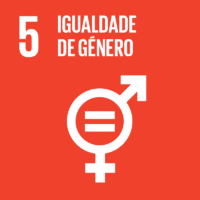Ciência_Iscte
Publicações
Descrição Detalhada da Publicação
Perceptions of time at work: why the clock ticks differently for men and women when they are not working at work
Título Revista
Personnel Review
Ano (publicação definitiva)
2016
Língua
Inglês
País
Reino Unido
Mais Informação
Web of Science®
Scopus
Google Scholar
Esta publicação não está indexada no Overton
Abstract/Resumo
Purpose - Activities such as making personal phone calls, surfing on the internet, booking personal appointments or chatting with colleagues may or may not deviate attentions from work. With this in mind, the purpose of this paper is to examine gender differences and motivations behind personal activities employees do at work, as well as individuals' perception of the time they spend doing these activities. Design/methodology/approach - Data were obtained from 35 individuals (M-age=37.06 years; SD=7.80) from a Portuguese information technology company through an ethnographic method including a five-day non-participant direct observation (n = 175 observations) and a questionnaire with open-ended questions. Findings - Results revealed that during a five-working-day period of eight hours per day, individuals spent around 58 minutes doing personal activities. During this time, individuals engaged mainly in socializing through conversation, internet use, smoking and taking coffee breaks. Results revealed that employees did not perceive the time they spent on non-work realted activities accurately, as the values of these perceptions were lower than the actual time. Moreover, through HLM, the findings showed that the time spent on conversation and internet use was moderated by the relationship between gender and the leisure vs home-related motivations associated with each personal activity developed at work. Originality/value - This study contributes to the literature on human resource management because it reveals how employees often perceive the time they spend on non-work related activities performed at work inaccurately. This study highlights the importance of including individual motivations when studying gender differences and personal activities performed at work. The current research discusses implications for practitioners and outlines suggestions for future studies.
Agradecimentos/Acknowledgements
--
Palavras-chave
Mixed methodologies,Gender differences,Home and leisure-related motivations,Perceived and actual time,Personal activities developed at work,Timelessness
Classificação Fields of Science and Technology
- Psicologia - Ciências Sociais
- Economia e Gestão - Ciências Sociais
Registos de financiamentos
| Referência de financiamento | Entidade Financiadora |
|---|---|
| UID/GES/00315/2013 | Fundação para a Ciência e a Tecnologia |
Contribuições para os Objetivos do Desenvolvimento Sustentável das Nações Unidas
Com o objetivo de aumentar a investigação direcionada para o cumprimento dos Objetivos do Desenvolvimento Sustentável para 2030 das Nações Unidas, é disponibilizada no Ciência_Iscte a possibilidade de associação, quando aplicável, dos artigos científicos aos Objetivos do Desenvolvimento Sustentável. Estes são os Objetivos do Desenvolvimento Sustentável identificados pelo(s) autor(es) para esta publicação. Para uma informação detalhada dos Objetivos do Desenvolvimento Sustentável, clique aqui.

 English
English



